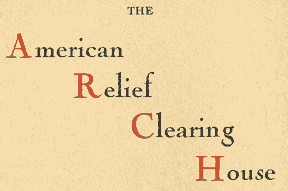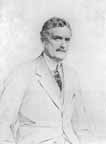


|
|
RÉPUBLIQUE FRANÇAISE
MINISTÈRE DES AFFAIRES ÉTRANGÈRES
CABINET DU MINISTREParis, le 6 Novembre 1922
Cher Monsieur Percy Mitchell,
Je suis confus de vous avoir aussi longtemps fait attendre les quelques ligues que je vous avais promises pour présenter aux lecteurs l'excellent livre consacré à l'œuvre de l'AMERICAN RELIEF CLEARING HOUSE. Mes minutes sont comptées en ce moment et je ne suis pas tout à fait responsable du retard que j'ai mis à vous répondre. Bien que je connusse très bien par moi-même les magnifiques services qu'a rendus l'AMERICAN RELIEF CLEARING HOUSE, j'ai tenu à en relire l'émouvant exposé dans l'ouvrage dont vous m'aviez envoyé les épreuves. Cette lecture a réveillé en moi de nombreux et pathétiques souvenirs. Je me suis rappelé bien des initiatives et des générosités dont j'avais été, comme Président de la République, le témoin émerveillé. Jamais la France n'oubliera les libéralités qu'elle a reçues, aux heures sombres de la guerre, d'une multitude d'amis américains. La croisade de la Charité avait devancé la croisade militaire : la bonté était venue à notre aide avant même que naquît entre nous la fraternité d'armes. Dès les premiers jours des hostilités, les Etats-Unis s'étaient tournés spontanément vers la France attaquée et envahie, et jamais, de mémoire d'homme, ne s'était produit dans le monde un tel élan de sympathie et de solidarité. Ni la distance, ni les flots, n'avaient empêché nos deux peuples de se sentir étroitement rapprochés par le cœur. Nos soldats blessés, nos veuves et nos orphelins de guerre, nos malheureux compatriotes chassés par l'invasion et réfugiés dans les contrées qu'elle avait épargnées, avaient immédiatement senti les bienfaits de cette union sentimentale. Le petit volume que je recommande à l'attention publique contient, sur le détail de ces largesses, des indications précieuses et des statistiques éloquentes. Mais, sous la froideur des chiffres, notre mémoire retrouve sans peine toute la chaleur et toute l'activité de l'infatigable affection qui nous a été témoignée. L'AMERICAN RELIEF CLEARING HOUSE a été vraiment digne de son illustre fondateur, M. Myron T. Herrick, qui nous a donné, en 1914, des preuves si éclatantes de son amitié pour la France et qui, même lorsqu'il s'est trouvé momentanément éloigné de nous, ne nous a jamais négligés.
Il a été remarquablement secondé, dans la noble mission qu'il avait assumée, par un groupe d'Américains qui résident à Paris et qui y ont conquis droit de cité, les Harjes, les Beatty, les Stillman, les Tuck, les Barbour.
Par une ingénieuse combinaison, le CLEARING HOUSE de Paris était relié à une institution similaire, établie à NewYork et fondée, elle aussi, par M. Herrick. Celle-ci mobilisait et recrutait les secours ; celle-là les recevait et les distribuait ; et plus les besoins augmentaient, plus la source semblait inépuisable. Des vêtements, du linge, des denrées alimentaires, des appareils pour les mutilés, de l'or et de l'argent traversaient constamment l'Atlantique et la charité américaine prenait chaque jour des formes nouvelles, toujours plus charmantes et plus ingénieuses. C'est ainsi qu'à lui seul le CLEARING HOUSE a introduit et réparti en France une somme supérieure à quatre-vingt-six millions : quatre-vingt six millions qu'avaient amassés par leur travail, là-bas, en Amérique, des hommes et des femmes qui n'étaient pas tous venus en Europe, qui n'avaient pas tous voyagé en France, dont beaucoup ne connaissaient Paris que de nom, mais qui, tout de même, savaient qu'une guerre inique avait été déclarée à un pays pacifique, qui voyaient de loin un peuple libre menacé dans son existence par un Empire de proie, et qui voulaient porter secours au malheur et au bon droit. Non, non, jamais la France n'aura l'ingratitude d'oublier tout cela.
Croyez, cher Monsieur, à mes sentiments dévoués.
(TRANSLATION)
I am sorry to have kept you waiting so long for the introduction which I promised you for the excellent book on the work of THE AMERICAN RELIEF CLEARING HOUSE. My time is limited at present, so I am not entirely responsible for the delay. Although I knew intimately from personal experience the magnificent services rendered by the AMERICAN RELIEF CLEARING HOUSE, I wanted to re-read the affecting account given in the book of which you sent me the proofs. It has revived for me many pathetic remembrances, and recalled numerous generous initiatives of which, as President of the Republic, I was an amazed witness. Never will France forget the bounties she received in the gloomy hours of war from a multitude of American friends. The crusade of Charity preceded the military crusade ; benevolence came to our aid even before the birth of our brotherhood of arms. In the first days of hostilities, the United States turned spontaneously towards France, attacked and invaded : and never in the world, within memory of man, was, there such an outflow of sympathy and solidarity. Neither distance nor the ocean could prevent the hearts of our two peoples from feeling closely drawn together. Our wounded soldiers, the widows and orphans, our hapless countrymen driven out by the invasion and seeking refuge in the uninvaded regions, felt the immediate benefits of this soul-union. The little volume, which I recommend to public attention, contains, as regards details of this largess, valuable indications and eloquent statistics. But, underlying cold figures, our memory easily discerns the warmth and activity of the indefatigable affection evidenced for us. The AMERICAN RELIEF CLEARING HOUSE was fully worthy of its illustrious founder, Mr. Myron T. Herrick, who gave us, in 1914, such striking proof of his friendship for France, and who, even when temporarily absent, never lost sight of us. In the noble mission he had taken up, he was remarkably seconded by a group of Americans, by Mr. Harjes, for instance, Mr. Beatty, the late Mr. Stillman, Mr. Tuck, Mr. Barbour, Americans who, residing in Paris, have earned for themselves the freedom of the city.
By an ingenious combination, the CLEARING HOUSE Of Paris was linked to a similar organization with headquarters in New York, founded also by Mr. Herrick. This latter mobilized and raised relief; while the former received and distributed it. The more necessities increased, the more inexhaustible seemed the sources of supply. Clothing, linen, food, material aid for the maimed, funds, flowed uninterruptedly across the ocean ; and American charity constantly assumed forms ever new, ever more ingenious, and ever more touching. The CLEARING HOUSE alone distributed in France more than eighty-six millions of francs : eighty-six millions contributed over there, in America, by the work of men and women not all of whom had seen Europe ; not all had travelled in France ; many knew Paris only by name. But all, nevertheless, knew that an iniquitous war had been declared on a peaceful country ; from afar all saw that the existence of a free people was threatened by a predatory Empire; and all felt the impulse to help Right and succour the unfortunate.
Never, never will France have the ingratitude to forget that.
Raymond POINCARÉ
Be ye charitable with discernment
---(ST. JOHN CHRYSOSTOM)